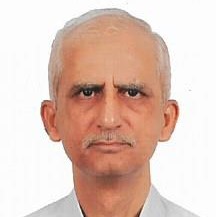Recently there was the news that the economic growth in India has slowed down to the lowest figure in past 9 years. The GDP had fallen to 5.3% in the last quarter of previous financial year for which data is available. This was thought to be of great concern and sent alarm bells ringing. The Deputy Chairman of Planning Commission in India characterized this as the "Anna" rate of growth, blaming the anti-corruption movement led by Anna Hazare for the poor performance of the economy.
The concept of economic growth, in terms of GDP, is itself questionable. In India, the policy makers blindly follow the western model of development based on GDP growth. However many western thinkers themselves have discarded this model. It has only brought unhappiness to the society as a whole as explained by Med Yones in his paper -- The American Pursuit of Unhappiness: Gross National Happiness (GNH) - A New Economic Metric.
In India, policy makers keep betting on this failed model of development. A wiser model of development based on the seven types of wellness (as explained by Med Yones) and not just material wellness, is not only possible but is also a must if the kind of predicament the west finds itself in is to be avoided. It would take some imagination and political will to pursue a new model of development and our leaders and policy makers are not up to it.
Maintaining the GDP at a high level, it is claimed, is necessary to generate employment and eradicate poverty. But the recent high rates of growth since the 1990s, has in effect brought misery to the majority of Indians. The reason is the growth in GDP has been skewed in favor of urban rich leaving out the rural poor. If only the emphasis had been on GNH then policies would have been framed that were more equitable and more people-friendly.
After 20 years of "Misery" rate of growth, if one may call so, the Indian policy makers are still fond of GDP and talk of maintaining it at a high level. They feel safer chasing the mirage of well-being that economic growth (GDP growth) seems to promise. They cite the example of China and how it has transformed itself in the past few decades by maintaining a high GDP growth rate. However, well-being has eluded the majority of China and its society is at crossroads.
Even in the US the failure of "GDP growth model" is yet to be recognized at the political level. However the fact that social well-being is more important than material growth has become obvious since having jobs for all and health care for all is now the political talking point. The materialistic way of life perpetuated by "GDP growth model" has fallen into disrepute and it is a question of time before a sensible alternative to GDP, like the GNH, is adopted officially by the US as well as other governments.
India would do well to dump the concept of GDP and adopt GNH to guide its policies and programs. The model of "GDP growth" has proved to be damaging to the ecosystem as well and is no longer sustainable. The decreasing forest cover, neglect of rural population as well as polluted and over-crowded cities is making daily news. Indian policy makers should set an example to the developing world by adopting a mature, people-friendly and nature-friendly model of development.
There is the argument that if India lags behind in economic growth (GDP growth) then China would pose a threat. China may feel that if materially it is not strong then India and the West would pose a threat. The West may feel the same way towards China, India and other developing nations. If the proponents of "GDP growth model" keep arguing in this manner and do not learn the lessons even now, then nature will teach its lesson through catastrophic climate change. Then everybody has to start from square one again.
Vijayaraghavan Padmanabhan is former Professor of Medicine, Madras Medical College. Based in Chennai, India.
His interests include Spirituality, Politics, Economics and Medicine.





